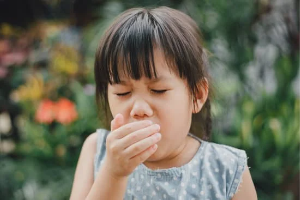Some of the most common questions I am asked are:
“Why does my child always get sick?”
“Is there something wrong with his/her immune system?”
“How can I prevent illnesses in my child?”

Many concerned parents come to me with these or similar questions. The good news is that the vast majority of children’s illnesses are common and minor. They cause temporary distress, pain, fever, and the measurable symptoms of the specific illness but no long-term complications. The most common illnesses include:
- Upper respiratory infections such as colds
- Flu
- Wheezing
- Ear infections
- Stomach viruses
Most of these illnesses occur because the child is exposed to that illness by another child or an adult. So, the best way to not get these illnesses is to avoid exposure to them in the first place.
The average child will get eight to ten colds per year, lasting 10 – 14 days each and clustering in the winter. This means that if a child gets two colds from March to September, and eight colds from September to March, each lasting two weeks, the child will be sick over half of the winter.
I have found that the single most cause of exposure to illness in small children is their daycare attendance. If a child is in daycare, especially during winter, expect multiple illnesses. Daycare has pros and cons, but one con is that a child is placed in a room full of sick children who touch toys, cough, sneeze on one another, and pass illnesses through various means. Although most daycare centers are diligent about keeping children with fever or obvious symptoms out of daycare, most viral infections are contagious before the symptoms are apparent. Other high-risk places include crowded shopping malls, grocery stores, and play groups. As stated, the best way to avoid illness is to avoid ill people.
Exposure to cigarette smoke increases the chances of getting illnesses. The toxins from cigarette smoking get into a child’s respiratory tract, making it harder for the child to fight off the illness. Many smokers respond to this by saying that they don’t smoke near their children. I don’t think this makes much of a difference. I believe it’s a false justification and an excuse to continue smoking. Believe me when I say that smoke does get into furniture, drapes, carpets, hair, clothing, and breath and always affects the child. Now is an excellent time to quit smoking!
In addition to avoiding things in the child’s environment that increase exposure and susceptibility to illness, parents can take a proactive approach. Good hygiene is a great exposure reducer. Most illnesses pass from touching the eyes, nose, or mouth. If there is good hand washing, it can prevent most illnesses.
Breastfeeding can prevent many illnesses in the younger child. Every time a person is exposed to a virus, their body builds immunity. This immunity is passed through the breast milk to infants. In my practice, I can tell who is breastfed and who is not by looking at how many sick visits the child has had. If there are hardly any or no sick visits, it is almost certain that that baby was breastfed. If there have been multiple sick visits, there is most likely no breastfeeding.
In the history of medicine, the things that have been most important to the improvement of people’s health include:
- Good hygiene
- Good nutrition
- Vaccinations
Vaccines prevent many of the most serious illnesses we face today. Without vaccinations, many millions of children would have contracted serious diseases. I understand that some people are against vaccinations for various reasons, but every reason against recommended vaccines has been proven to be nothing compared to the benefits of vaccination. People who refuse to vaccinate their children are putting their children and the children around them at risk. Luckily for those who do not receive vaccinations, everyone else is vaccinating their children, so these serious illnesses are no longer so prevalent. But as more and more people do not vaccinate their children, the more these illnesses will return, and the more exposure children will have to them. If they are not vaccinated, they will run a greater risk of contracting some of these illnesses.
Those children suffering from an immune deficiency or serious illness which causes them to be sick all of the time need special consideration. Things that make you think about an immune deficiency or more severe illnesses include multiple hospitalizations, non-response to standard medical treatment, or instances where more unusual organisms are causing the infections.
Those who think that cold weather causes cold are misinformed. The truth is that when there is cold weather, people tend to stay indoors more, allowing viruses to be more easily transmitted from person to person.
Written by Dr. Michael Bornstein, who has 30 years of experience as a pediatrician.
Disclaimer: The contents of this article, including text and images, are for informational purposes only and do not constitute a medical service. Always seek the advice of a physician or other qualified health professional for medical advice, diagnosis, and treatment.


FOLLOW US